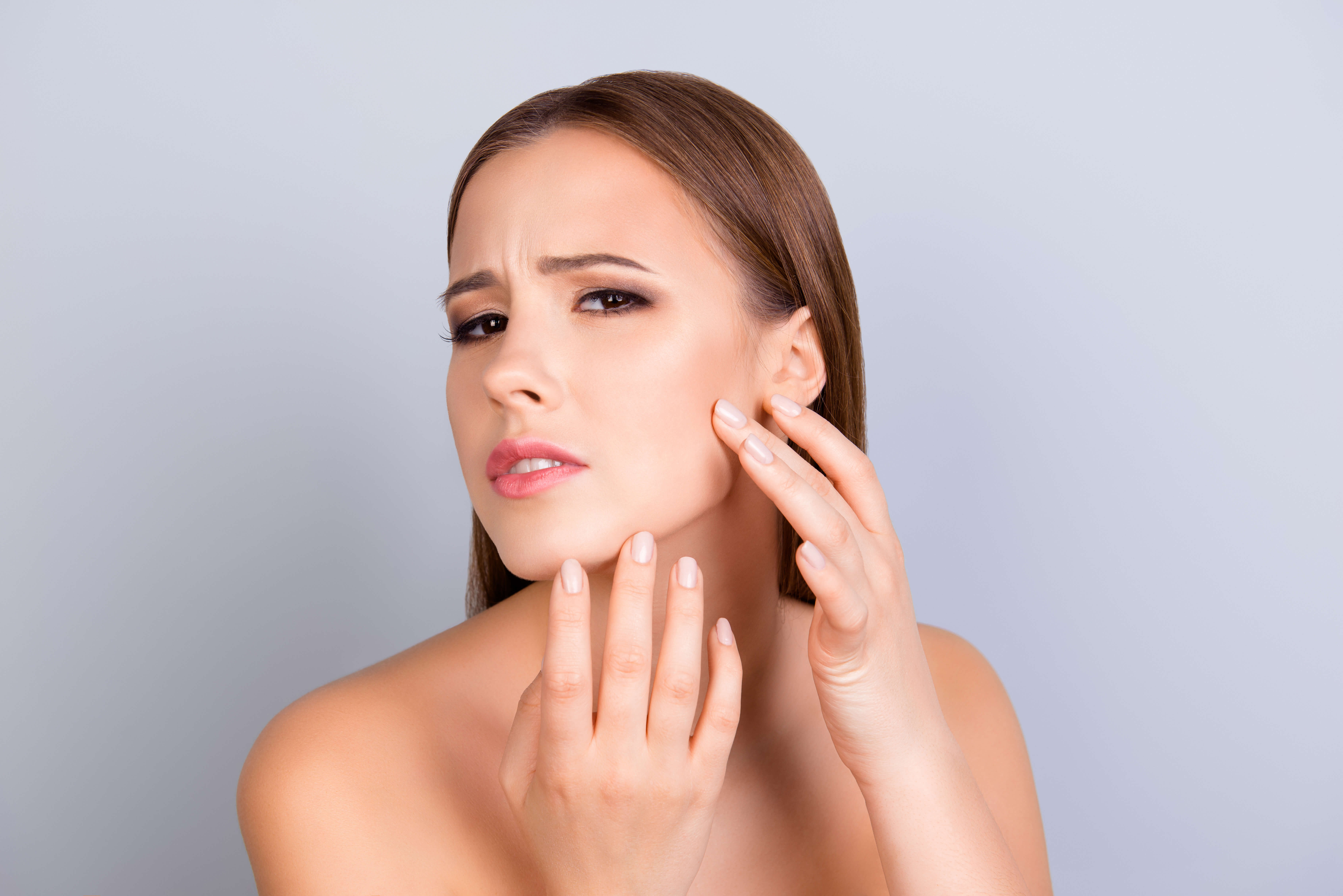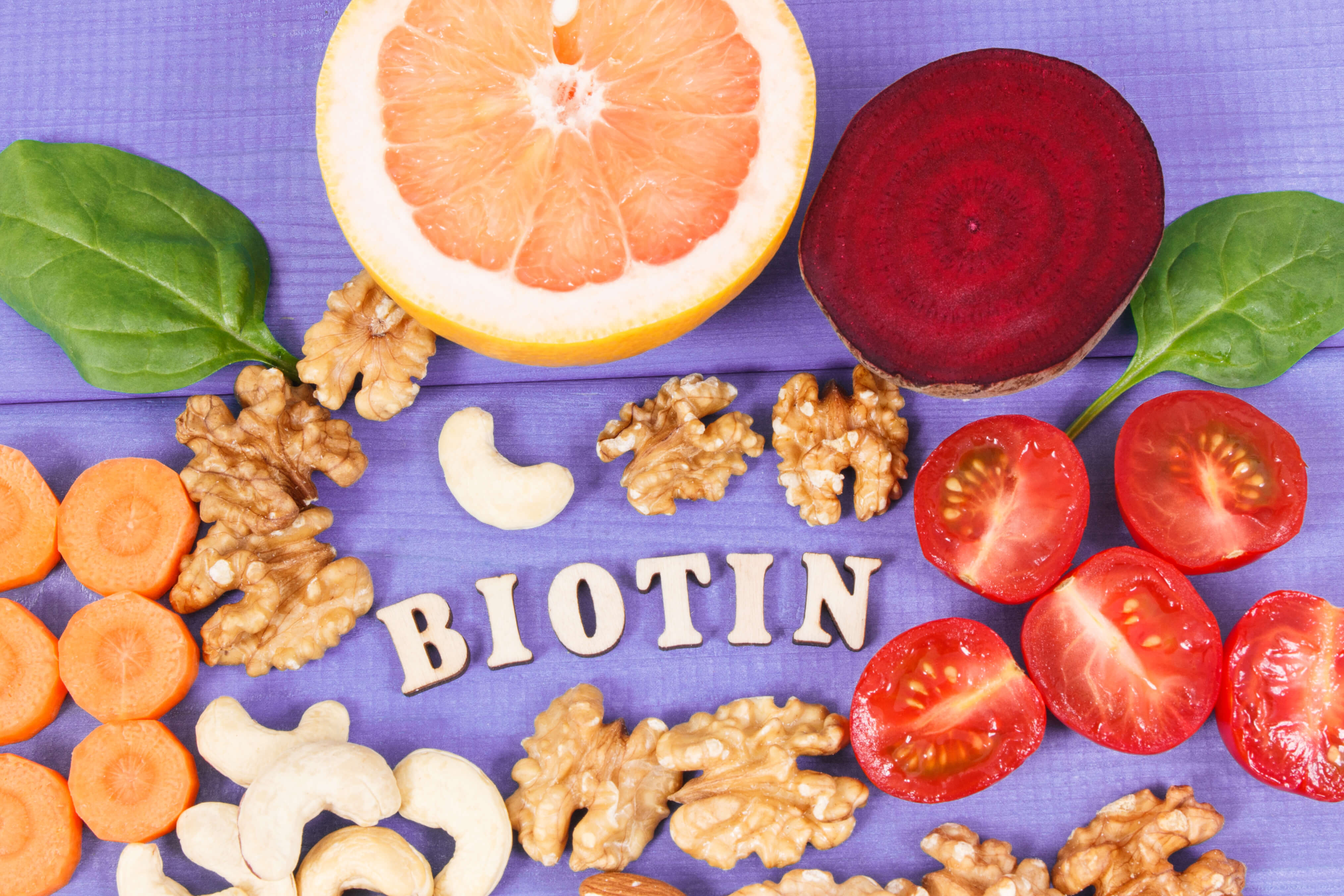Biotin is vitamin B7 that your body can’t store because it’s water soluble. It’s eliminated from the body and that’s why you need to take it on a regular basis. It supports the metabolism because it acts like a coenzyme for amino acids, fatty acids and glucose.
Nowadays, people use it for skin, hair and nails but it’s also good for many other things.
Here are some biotin benefits:
It helps with nail health – Brittle nails are problem for many people and that is usually because of biotin deficiency. You can take biotin supplements or eat biotin-rich foods to improve your nail health.

It promotes tissue repair and growth – If you get an infection, an injury or anything similar, biotin can help your skin heal and repair. It can help your skin regenerate and it minimizes inflammation.
It can help with hair loss – Biotin can improve the symptoms of alopecia areata and it can act to make thinning hair stronger, healthier and better looking.

It can help your skin be healthier – Our skin requires additional protection and one of the best in that is biotin. It can help with dry skin, redness, irritation and so on.
You can get biotin from legumes, raspberries, swiss chard, cauliflower, pecans, sunflower seeds, or through supplements.
Are there side effects to taking biotin?
Biotin is widely used for skin, hair and nail improvement. However, it’s a supplement and as such should be taken carefully because it can affect your body negatively as well. So, it’s good to know what biotin can cause so you can understand the symptoms of overuse when you notice them. This doesn’t mean that these side effects will happen, but it’s always good to be cautious.
Here are some biotin side-effects:
Acne – If you use too much biotin, you could start suffering from acne that will usually appear on your jaw or chin. This is not a really dangerous side-effect but it’s still one most people would prefer to avoid. Acne can be painful and they can ruin your self-esteem.

A possibility for misdiagnosis – If you are taking a lot of biotin, this could change your lab results and lead to heart attack misdiagnosis. So, make sure that your doctor is informed on all of the medications and supplements you take, even if it is just supplements for better appearance.
It can increase your blood sugar – Biotin can cause your insulin to release on a more slower basis which leads to high blood sugar levels. If you are a diabetes patient, you should make sure that you are not taking biotin because it can further deteriorate your state.
You could upset your stomach – Too much biotin can cause many issues in your digestive system. Biotin can cause nausea, cramping,diarrhea and many other stomach issues.
It can cause a rash – You can also get negative skin reactions if you take too much biotin.

It can cause an allergic reaction – If you are allergic to vitamin B12 or cobalt, you should avoid biotin. You might get nausea, rashes, swelling of the throat or face because of the allergy. It’s not dangerous but it can be if you don’t get help from the doctors.
Be careful which meds you take it with – Biotin can interact with medications for cholesterol, anticonvulsants and those for diabetes. This can be dangerous and that’s why you need to talk to your doctor before taking biotin.
While many people do take biotin without any issues, you should first consult your healthcare provider to get some proper advice as well as a recommended dosage.
Is Biotin good for weight loss?

Our body needs to maintain certain levels of biotin to function properly. Biotin is said to help with many things and it’s most popular for hair and nail improvement. It can have other benefits as well like for digestion of carbs, increasing energy levels, helping you have a healthier and stronger metabolism.
These all mean that biotin could potentially help you lose weight but studies are still inconclusive when it comes to this area and scientists claim that biotin has nothing to do with weight loss.
Still, people across the globe do notice some improvements in their weight loss. It shouldn’t be used as a weight loss pill but rather an addition to good diet and proper exercising. It’s best absorbed when taken with food. It’s necessary for fatty acids and glucose formation.
Biotin deficiencies are rare as biotin can be found in many foods. However, supplements can have a good effect on your body if you take an appropriate dosage. Any excess should be expelled from your body since it’s water-soluble.
While reports say that biotin usually has nothing to do with weight loss, you could try eating more biotin-rich foods and even taking supplements if you consult on it with your doctor first. Make sure that you have explained your health situation to your doctors because there have been many cases where biotin cancels out medication.
Remember that the best way to lose weight is to eat a well-balanced diet of fruit, vegetables and lean meat, eliminating sweets and carbonated drinks as well as bread and pastries from your diet and of course, exercising. There is no magic pill that for weight loss.
Can you take too much biotin?
Biotin is available as a supplement that can improve your hair, nail and skin health. While most people take it for these reasons and often without consulting their healthcare providers, biotin is a vitamin you should only take if your doctor says so. You probably get plenty of it through food.
Before taking biotin, you should make sure that your doctor is aware of all of the other medications you are taking. You should also discuss recommended dosage. Taking too much biotin can result in numerous possible side effects like acne, rashes and so on. Especially so if you are a diabetic or take medications for the heart.
Smokers, people who eat too many raw eggs or have an unbalanced diet can have biotin deficiency. In these cases, the doctor will likely recommend a dosage of biotin to make up for what’s lost.
Most common symptoms of biotin deficiency are:
- Hair loss or hair thinning
- High cholesterol
- Rash
- Heart issues
When you take too much biotin – which means taking it more than is the recommended dosage – you can suffer from numerous negative effects. You will usually get all of the biotin you need through food.
If you have a balanced diet, you are probably getting all of the biotin you need. Otherwise, talk to your doctor before you take any biotin because excess dosage can harm you more than help you.
How do you know if you need biotin?
B vitamins help your body turn carbohydrates into glucose which then turns into energy. They also help with fat and protein processing as well as nervous function. In addition, you can help your nails, skin and hair with biotin.
It’s available in some foods and it can also be bought as a supplement. It’s water soluble so it can’t be stored.
Biotinidase deficiency is an inherited condition that is rare and it’s caused by biotin deficiency. This happens when the body can’t process and use biotin. It’s caused by a BTD gene mutation.
Children with BTD start showing symptoms in the first days of life. Common symptoms include:
- Weak muscles
- Seizures
- Hair loss
- Eczema
- Developmental delays
There are more symptoms like diarrhea and other issues. Without treatment, it can be deadly. Symptoms can also appear later in life.
Here are some more risk factors:
- Being fed intravenously for long periods
- Taking anti-seizure medications for a long time
- Taking antibiotics for a long time
- Having a condition which makes it hard for stomach to process nutrients
- Pregnancy
- Excessive use of alcohol
Symptoms of biotin deficiency build up over time and include:
- Hair thinning
- Hair loss
- Red rash around eyes, nose, mouth
- Conjunctivitis
Adults can get:
- Seizures
- Brittle nails
- Skin infections
- Neurological problems
Legumes are a healthy source of biotin. You can also get supplements if you have BTD. Recommended daily intake is 30 mcg and for children it’s 5 mcg while pregnant women should take 35 mcg every day. Always discuss supplements with your doctor because it may be dangerous for you.
Here are some of the best sources of biotin to include in your daily diet:
- Yeast
- Cooked egg yolk
- Sardines
- Nuts like almonds, peanuts, pecans and walnuts
- Nut butters
- Legumes
- Whole grains
- Cauliflowers
- Bananas
- Mushrooms

Biotin is a necessary vitamin in our bodies. However, taking too much can be bad for you so you should strive to take it from natural sources rather than from supplements unless you have a biotin deficiency. Always consult your doctor before taking any supplements. Enjoy the benefits of taking biotin in a healthy and safe way.
References
https://www.medicalnewstoday.com/articles/320462.php
https://www.healthline.com/health/biotin-side-effects
https://www.livestrong.com/article/324249-effects-of-biotin-on-the-weight-loss/
https://www.fashionlady.in/benefits-of-biotin-for-skin-hair-and-health/102814


 The Best Natural Shampoos
The Best Natural Shampoos